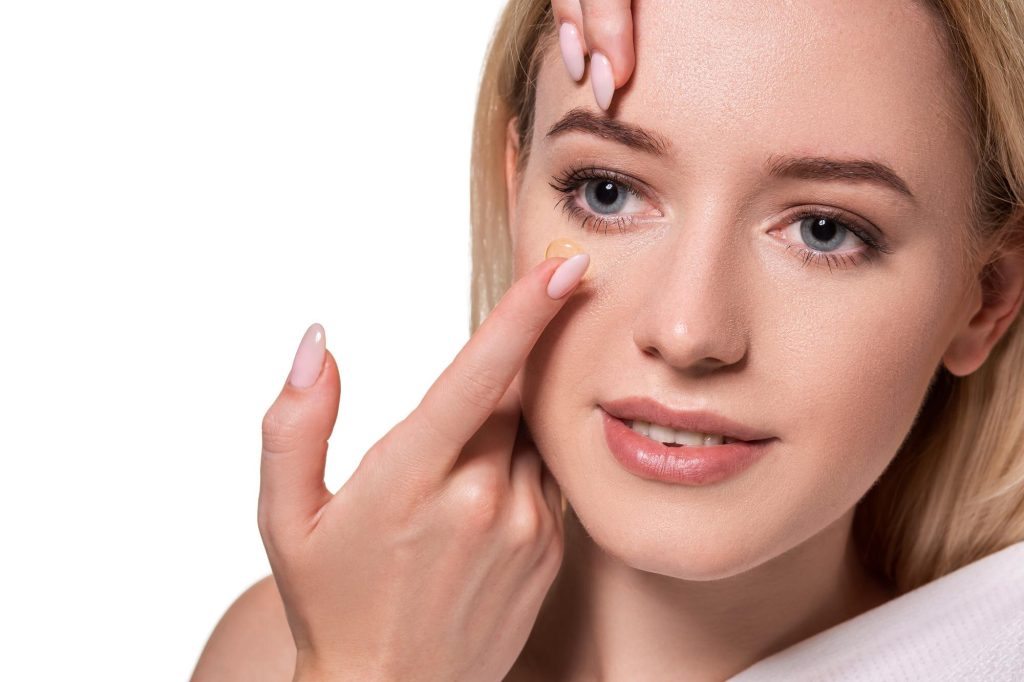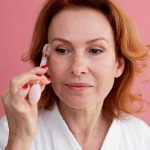Is it safe to sleep in contacts if they’re approved for sleep?
Contact lenses specifically approved for extended wear may have a reduced risk of complications if worn during sleep, but it is still generally recommended to remove them before sleeping. Even with approved lenses, there is a higher risk of eye irritation, infection, and other complications compared to not sleeping in contacts at all.
Who’s at risk?
Anyone who wears contact lenses is at risk if they choose to sleep in them. However, certain factors may increase the risk, including:
- Wearing lenses that are not specifically approved for overnight wear
- Having a history of eye infections or complications
- Having a weakened immune system
- Having a tendency to forget or neglect proper lens care and hygiene
How does sleeping in contacts raise your risk of infection?
Sleeping in contacts creates a higher risk of infection due to the decreased oxygen flow to the cornea. During sleep, the closed eyelids restrict the oxygen supply to the cornea, creating an environment that is more conducive to bacterial growth. Additionally, contacts can trap debris, bacteria, and other microorganisms against the eye’s surface, increasing the likelihood of an infection.
What can go wrong?
Sleeping in contacts can lead to various eye complications, including:
Bacterial keratitis
Bacterial keratitis is an infection caused by bacteria that can colonize the lens or enter the eye while wearing contacts. It can cause redness, pain, blurred vision, and discharge. If left untreated, it can lead to more severe complications, including corneal ulcers or scarring.
Acanthamoeba keratitis
Acanthamoeba keratitis is a rare but severe infection caused by a microscopic organism found in water and soil. Sleeping in contacts increases the risk of exposure to this organism, which can lead to a painful and sight-threatening corneal infection.
Fungal keratitis
Fungal keratitis is a potentially serious infection caused by fungi that can invade the cornea. Sleeping in contacts increases the risk of exposure to fungi, making the eyes more susceptible to this infection. Fungal keratitis can cause vision loss and may require long-term treatment.
What if I accidentally fall asleep in them one night?
Accidentally falling asleep in contacts once in a while may not cause immediate harm, but it is still important to remove them as soon as you wake up. If you frequently fall asleep in contacts, it is recommended to speak with your eye care professional about alternatives or lenses specifically designed for extended wear.
Read also about UVB Therapy and Phototherapy Options for Skincare
Eye care tips for lens wearers
To maintain healthy eyes while wearing contacts:
- Follow your eye care professional’s instructions for lens cleaning and disinfection.
- Avoid sleeping in your contacts unless specifically approved for extended wear.
- Remove your contacts before swimming or using hot tubs to reduce the risk of infection.
- Replace your contacts as recommended by your eye care professional.
- Attend regular eye exams to monitor the health of your eyes.
The bottom line
Sleeping in contacts is generally not recommended due to the increased risk of eye complications, including infections that can lead to serious consequences. It is essential to prioritize the health and safety of your eyes by following proper lens care and hygiene practices, as well as seeking professional advice from your eye care provider.



